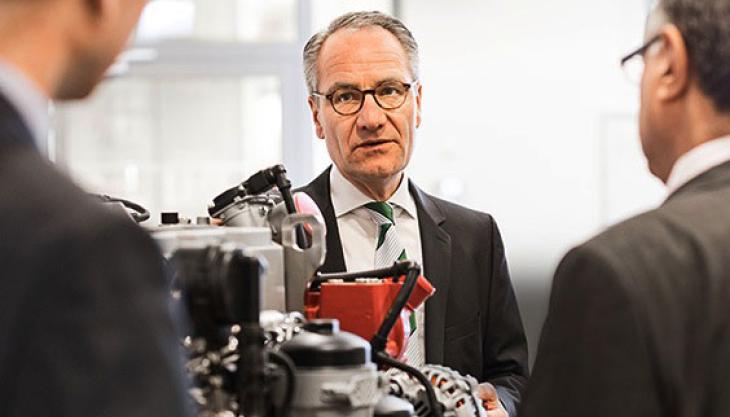Deutz approve engines for use with alternative fuels

Engine manufacturer approves use of alternative fuels to reduce carbon footprint of combustion engines
DEUTZ have approved the latest generation of their entire TCD engine range for operation with alternative fuels, which will make a further significant reduction to the carbon footprint of combustion engines and may even raise the prospect of running such engines on a carbon-neutral basis.
According to the company, this represents the next logical step in its efforts to develop sustainable and efficient drive systems, in combination with the electrification of its engine portfolio under the E-Deutz strategy.
Sole use of electric motors is already a viable option in the low power output range, but for medium- and heavy-duty applications, such as construction equipment, there is, as yet, no suitable replacement for the combustion engine as the primary source of power.
While electrification can improve efficiency as part of a hybrid system and allows for a downsizing of the combustion engine, Deutz say there is still considerable potential for improving the eco-friendliness of conventional engines by choosing different fuels.
The manufacturer has now approved its TCD 2.9 / 3.6 / 4.1 / 6.1 / 7.8 / 12.0 / 16.0 engine series under the current EU Stage IV/US Tier 4 standard, as well as all older Deutz engines without exhaust aftertreatment, for operation with paraffinic diesel fuels and biodiesel or biodiesel blends.
The term paraffinic diesel fuel encompasses a wide range of products. Hydrogenated vegetable oils (HVOs), in particular, are currently being produced on a commercial scale from sustainable plant oils and waste fats. In the future, these ‘e-fuels’ will also become part of the mix that will allow engines to operate on an eco-friendly, carbon-neutral basis using renewable energy.
The underlying principle is that during the production process the same amount of CO2 is taken out as is emitted by the combustion process. Because of its chemical composition, synthetic diesel fuel produced by this method can be mixed and used with fossil-based diesel in any ratio.
In Europe, biodiesel is primarily based on sustainably and locally produced vegetable oils and waste fats. The approval covers 100% biodiesel for EU Stage IV as well as biodiesel blends, ie blended fuels containing biodiesel, for EU Stage IV and US Tier 4 engines.
Deutz say their ‘e-fuels’ and the E-Deutz electrification strategy represent a perfect fit and they are driving forward both technologies with the aim of minimizing their carbon footprint.
‘For us as an engine manufacturer, alternative fuels are a key component in our innovative drive system mix,’ explained Dr Markus Schwaderlapp (pictured), head of research and development at Deutz AG.
‘We believe that ‘e-fuels’ offer a lot of potential for running combustion engines on a carbon-neutral basis. We are, therefore, looking to combine the benefits of combustion engines – robustness, mobility and flexibility – with those offered by electric drives.’









